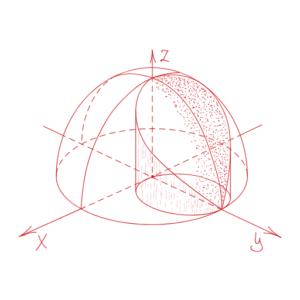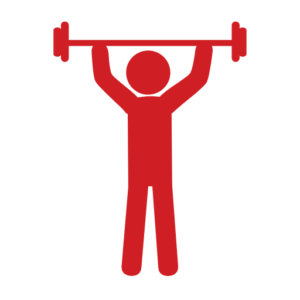Course Name:Arts
Course Description
In Grade 7 Language, our students, will explore arts in various ways by creating artworks using various traditional forms and current media technologies to express feelings, ideas, and issues. They will apply the elements of music when singing and playing, composing, and arranging music. Students will use dance as a language to communicate ideas from their writing or media works. Students will also engage actively in drama exploration and role play, focusing on examining multiple perspectives related to current issues, themes, and relationships
Course Outline
Grade -7 Arts - Total Hours (31 Hours)
Unit One: Visual Arts (8-Hours)
Unit Two: Music (8-Hours)
Furthermore, students will create musical compositions in various forms for specific purposes and audiences and demonstrate an understanding of standard and other musical notation through performance and composition.
Unit Three: Dance (8-Hours)
Additionally, they will use themes and variations in various ways when creating dance pieces. They will describe the evolution of dance and performances of different people who have responded to external factors such as migration, a new environment, and contact with other groups or cultures. Lastly, students will analyze, using dance vocabulary dance pieces to identify the elements of dance, the choreographic forms used and to communicate their meaning.
Unit Four: Drama (7-Hours)
In addition, students will plan and shape the direction of the drama by working with others, both in and out of roles, to generate ideas and explore multiple perspectives. They will construct personal interpretations of drama works that connect drama issues and themes to ideas, feelings, and experiences. Finally, students will describe how drama and theatre contribute to contemporary social, economic, and cultural life.
Resources required by the student:
- A scanner, smartphone camera, or similar device to upload handwritten or hand-drawn work,
- Laptop and/or personal computer (preferably with Google Chrome or Mozilla Firefox as a web browser)
- Access to video recording and handwritten work scanning (mobile phone, tablet, iPad, webcams)
- Stable internet connection
Resources provided by Canadian Global School
- Access to Google Suites or Microsoft Education for word processing software and presentation software. (The school will distribute accounts to students).
- Supplemental Readings
Note: This course is entirely online and does not require or rely on any textbook.
Resources Needed:
This course is entirely online and does not require nor rely on any textbook. Students will require the following resources:
- Laptop and/or personal computer (preferably with Google Chrome or Mozilla Firefox as a web browser)
- Stable internet connection
- A scanner, smartphone camera, or similar device to digitize handwritten or hand-drawn work
- Access to video recording and handwritten work scanning (mobile phone, tablet, iPad, webcams)
- Various art supplies to complete offline activities

Teaching Strategies
Using a variety of instructional strategies, the teacher will provide numerous opportunities for students to develop skills of inquiry, problem solving, and communication as they investigate and learn fundamental concepts. The integration of critical thinking and critical inquiry skills will provide a powerful tool for reasoning and problem solving, and is reflected in a meaningful blend of both process and content Throughout this course students will:
- Interact in student-paced and instructor-paced interactive, engaging instructional lessons.
- Understand the value of diversity in learning and in society
- Refine their existing compensatory strategies for learning and develop additional strategies to help meet their potential as learners and use them throughout the elementary grades.
- Cultivate problem-solving skills to become independent learners.
- Opportunities to learn in various ways- individually, cooperatively, independently, with teacher direction, through hands-on experiences, and through examples followed by practice.
- Accomplish prompts on interactive lessons, students can reflect on different texts. In addition, constant communication with teachers ensures that the students understand complex topics and apply them in their writing. They can also accomplish other tasks through the use of animations, videos, discussion forums, live chat and other interactive objects.
The course relies on the help of a teacher to support young learners through the lessons. The teacher will be working in facilitating the course content and participating in discussions to support students in developing communication skills.
Course Name:Math
Course Description
In Grade 7 Math, students will explore numbers up to one billion. They will further explore their knowledge of fractions, decimals, and percentages and their understanding of operations to connect geometry, professions and real-world issues. As they progress through intermediate math, they will apply their data-handling skills to information obtained in their daily lives and communities. They will also identify patterns and algebraic relationships. Their financial literacy will increase as they better understand budgets and how to create plans to achieve financial goals.

Curriculum Information:Mathematics (2020)

Course Developer: Canadian Global School

Development Date: 2022
Course Outline
Grade-7 Math -Total Hours (158 Hours)
Unit One: Number (40-Hours)
Unit Two: Algebra (40-Hours)
Unit Three: Data (40-Hours)
Unit Four: Spatial (38-Hours)
Resources required by the student:
- A scanner, smartphone camera, or similar device to upload handwritten or hand-drawn work,
- Laptop and/or personal computer (preferably with Google Chrome or Mozilla Firefox as a web browser)
- Access to video recording and handwritten work scanning (mobile phone, tablet, iPad, webcams)
- Stable internet connection
Resources provided by Canadian Global School
- Access to Google Suites or Microsoft Education for word processing software and presentation software. (The school will distribute accounts to students).
- Supplemental Readings
Note: This course is entirely online and does not require or rely on any textbook.
Resources Needed:
This course is entirely online. It does not require nor rely on any textbook.
Students will need the following resources:
- Laptop and/or personal computer (preferably with Google Chrome or Mozilla Firefox as a web browser)
- Stable internet connection
- A scanner, smartphone camera, or similar device to digitize handwritten or hand-drawn work
- Access to video recording and handwritten work scanning (mobile phone, tablet, iPad, webcams)

Teaching Strategies
Using various instructional strategies, the teacher will provide numerous opportunities for students to develop inquiry, problem-solving, and communication skills as they investigate and learn fundamental concepts. The integration of critical thinking and critical inquiry skills will provide a powerful tool for reasoning and problem solving and is reflected in a meaningful blend of both process and content.
Throughout this course, students will:
- Interact in student-paced and instructor-paced interactive, engaging instructional lessons.
- Understand the value of diversity in learning and in society
- Develop self-confidence and self-advocacy skills
- Refine their existing compensatory strategies for learning and develop additional strategies to help meet their potential as learners and use them throughout the elementary grades.
- Cultivate problem-solving skills to become independent learners.
- Opportunities to learn in various ways- individually, cooperatively, independently, with teacher direction, through hands-on experiences, and through examples followed by practice.
- Accomplish prompts on interactive lessons. Students can reflect on different texts. In addition, constant communication with teachers ensures that the students understand complex topics and apply them in their writing. They can also accomplish other tasks by using animations, videos, discussion forums, live chat and other interactive objects.
The course relies on the help of a teacher to support young learners through the lessons. The teacher will be working in facilitating the course content and participating in the discussions to support students in developing communication skills
Course Name:Science
Course Description
In Grade 7 Science, the students will learn about the numerous effects humans have on the environment. They will investigate pure substances and mixtures. They will explore the function of heat in natural processes, including the causes and effects of heat and its characteristics and heat transfer. Students will also look into the impact of forces on structures and how stable they are.

Curriculum Information: Science (2022)

Course Developer: Canadian Global School

Development Date: 2022
Course Outline
Grade-7 Science -Total Hours (95 Hours)
Unit One: Understanding Life Systems Interactions in the Environment (23-Hours)
Unit Two: Understanding Structures and Mechanisms, Form and Function (23-Hours)
Unit Three: Understanding Matter and Energy (23-Hours)
Unit Four: Understanding Earth and Space Systems Heat in the Environment (26-Hours)
Resources required by the student:
- A scanner, smartphone camera, or similar device to upload handwritten or hand-drawn work,
- Laptop and/or personal computer (preferably with Google Chrome or Mozilla Firefox as a web browser)
- Access to video recording and handwritten work scanning (mobile phone, tablet, iPad, webcams)
- Stable internet connection
Resources provided by Canadian Global School
- Access to Google Suites or Microsoft Education for word processing software and presentation software. (The school will distribute accounts to students).
- Supplemental Readings
Note: This course is entirely online and does not require or rely on any textbook.
Resources Needed:
This course is entirely online and does not require nor rely on any textbook. Students will need the following resources:
- Stable internet connection
- A scanner, smartphone camera, or similar device to digitize handwritten or hand-drawn work
- Access to video recording and handwritten work scanning (mobile phone, tablet, iPad, webcams)
- Various household items to complete offline activities

Teaching Strategies
Using a variety of instructional strategies, the teacher will provide numerous opportunities for students to develop skills of inquiry, problem-solving, and communication as they investigate and learn fundamental concepts.
The integration of critical thinking and critical inquiry skills will provide a powerful tool for reasoning and problem solving and is reflected in a meaningful blend of both process and content.
Throughout this course, students will:
- Interact in student-paced and instructor-paced interactive, engaging instructional lessons.
- Develop self-confidence and self-advocacy skills
- Refine their existing compensatory strategies for learning and develop additional strategies to help meet their potential as learners and use them throughout the elementary grades.
- Cultivate problem-solving skills to become independent learners.
- Opportunities to learn in various ways- individually, cooperatively, independently, with teacher direction, through hands-on experiences, and through examples followed by practice.
- Accomplish prompts on interactive lessons. Students can reflect on different texts. In addition, constant communication with teachers ensures that the students understand complex topics and apply them in their writing. They can also accomplish other tasks by using animations, videos, discussion forums, live chat and other interactive objects.
Course Name: History
Course Description
In Grade 7 history, students will examine social, political, economic, and legal changes in Canada between 1713 and 1850. They will explore the experiences and challenges of groups in Canada during this period and compare them to present-day Canadians’ experiences. Students will apply the historical inquiry process to investigate different perspectives on issues in eighteenth- and early nineteenth-century Canada. Students will learn about various groups in colonial Canada and how they were affected by the conflicts and changes that characterized this period. They will begin to apply the concepts of historical thinking to their study of Canadian history, leading to deeper and more meaningful explorations of life in colonial Canada.

Curriculum Information:Social Science (2018)

Course Developer: Canadian Global School

Development Date: 2022
Course Outline
Grade -7 History - Total Hours (31 Hours)
Unit One: New France and British North America, 1713–1800 (15-Hours)
Unit Two: Conflicts and Challenges in Early Canada, 1800–1850 (16-Hours)
Resources required by the student:
- A scanner, smartphone camera, or similar device to upload handwritten or hand-drawn work,
- Laptop and/or personal computer (preferably with Google Chrome or Mozilla Firefox as a web browser)
- Access to video recording and handwritten work scanning (mobile phone, tablet, iPad, webcams)
- Stable internet connection
Resources provided by Canadian Global School
- Access to Google Suites or Microsoft Education for word processing software and presentation software. (The school will distribute accounts to students).
- Supplemental Readings
Note: This course is entirely online and does not require or rely on any textbook.
Resources Needed:
This course is entirely online and does not require nor rely on any textbook. Students will require the following resources:
- Laptop and/or personal computer (preferably with Google Chrome or Mozilla Firefox as a web browser)
- Stable internet connection
- A scanner, smartphone camera, or similar device to digitize handwritten or hand-drawn work
- Access to video recording and handwritten work scanning (mobile phone, tablet, iPad, webcams)

Teaching Strategies
| Students will develop a solid foundation of history processes, knowledge, and skills to apply in real-world contexts through a combination of problem-solving and direct instruction. The course employs a mix of online and offline activities to allow students to develop an understanding of skills and concepts in interactive and concrete ways and engage multiple learning styles. To reinforce students’ learning, the lessons include a variety of intriguing storylines, characters, videos, storybooks, and interactive games. These activities also lay the groundwork for students to use historical terms throughout the elementary grades.
The teacher will assist students in developing communication skills by facilitating the course content and participating in discussion-based activities. |
Course Name:French
Course Description
In Grade 7 French, our students will explore ideas to be healthy. They will express their interests and hobbies. They will plan an activity in a French-speaking community and show their ability to situate themselves and interact in a new environment.

Curriculum Information:French (2013)

Course Developer: Canadian Global School

Development Date: 2022
Course Outline
Grade -7 French - Total Hours (158 Hours)
Unit One: Être en forme (40-Hours)
Unit Two: Mes intérêts (40-Hours)
Unit Three: Destination francophone (40-Hours)
Unit Four: Je me débrouille (38-Hours)
Resources required by the student:
- A scanner, smartphone camera, or similar device to upload handwritten or hand-drawn work,
- Laptop and/or personal computer (preferably with Google Chrome or Mozilla Firefox as a web browser)
- Access to video recording and handwritten work scanning (mobile phone, tablet, iPad, webcams)
- Stable internet connection
Resources provided by Canadian Global School
- Access to Google Suites or Microsoft Education for word processing software and presentation software. (The school will distribute accounts to students).
- Supplemental Readings
Note: This course is entirely online and does not require or rely on any textbook.
Resources Needed:
This course is entirely online and does not require nor rely on any textbook. Students will require the following resources:
- Laptop and/or personal computer (preferably with Google Chrome or Mozilla Firefox as a web browser)
- Stable internet connection
- A scanner, smartphone camera, or similar device to digitize handwritten or hand-drawn work
- Access to video recording and handwritten work scanning (mobile phone, tablet, iPad, webcams)

Teaching Strategies
Using a variety of instructional strategies, the teacher will provide numerous opportunities for students to develop skills of inquiry, problem solving, and communication as they investigate and learn fundamental concepts. The integration of critical thinking and critical inquiry skills will provide a powerful tool for reasoning and problem solving, and is reflected in a meaningful blend of both process and content Throughout this course students will:
- Interact in student-paced and instructor-paced interactive, engaging instructional lessons.
- Understand the value of diversity in learning and in society
- Refine their existing compensatory strategies for learning and develop additional strategies to help meet their potential as learners and use them throughout the elementary grades.
- Cultivate problem-solving skills to become independent learners.
- Opportunities to learn in various ways- individually, cooperatively, independently, with teacher direction, through hands-on experiences, and through examples followed by practice.
- Accomplish prompts on interactive lessons, students can reflect on different texts. In addition, constant communication with teachers ensures that the students understand complex topics and apply them in their writing. They can also accomplish other tasks through the use of animations, videos, discussion forums, live chat and other interactive objects.
- The course relies on the help of a teacher to support young learners through the lessons. The teacher will be working in facilitating the course content and participating in discussions to support students in developing communication skills.
Course Name: Health
Course Description
In Grade 7 Health, students will understand the factors that contribute to healthy development, personal responsibility for lifelong health, and a respect for their health in relation to others and the world around them. Students will develop health literacy as they acquire the knowledge and skills they need to develop, maintain, and enjoy healthy living and solve problems, make decisions, and set goals that are directly related to their health and mental health and well-being.

Curriculum Information:Health (2009)

Course Developer: Canadian Global School

Development Date: 2022
Course Outline
Grade -7 Health - Total Hours (31 Hours)
Unit One: Healthy Eating (8-Hours)
Unit Two: Personal Safety and Injury Prevention (8-Hours)
Unit Three: Human Development and Sexual Health (8-Hours)
Unit Four: Mental Health Literacy (7-Hours)
Additionally, students will identify when to ask for help by recognizing signs of stress and understanding the body and brain’s response to stress. They will learn to recognize feelings and environmental factors contributing to stress and other challenges. Students will understand how and where to get help. Lastly, they will identify the role of professional helpers.
Resources required by the student:
- A scanner, smartphone camera, or similar device to upload handwritten or hand-drawn work,
- Laptop and/or personal computer (preferably with Google Chrome or Mozilla Firefox as a web browser)
- Access to video recording and handwritten work scanning (mobile phone, tablet, iPad, webcams)
- Stable internet connection
Resources provided by Canadian Global School
- Access to Google Suites or Microsoft Education for word processing software and presentation software. (The school will distribute accounts to students).
- Supplemental Readings
Note: This course is entirely online and does not require or rely on any textbook.
Resources Needed:
This course is entirely online and does not require nor rely on any textbook. Students will require the following resources:
- Laptop and/or personal computer (preferably with Google Chrome or Mozilla Firefox as a web browser)
- Stable internet connection
- A scanner, smartphone camera, or similar device to digitize handwritten or hand-drawn work
- Access to video recording and handwritten work scanning (mobile phone, tablet, iPad, webcams)
- A physical binder, folder, or notebook for offline activities

Teaching Strategies
Students will develop a solid foundation of healthy living processes, knowledge, and skills to apply in real-world contexts through a combination of problem-solving and direct instruction. The course employs a mix of online and offline activities to provide opportunities for students to develop an understanding of skills and concepts in interactive and concrete ways and engage multiple learning styles. To reinforce students’ learning, the lessons include a variety of intriguing storylines, characters, videos, storybooks, and interactive games. These activities also lay the groundwork for students to use health and nutrition-related terms throughout the elementary grades.
The teacher will assist students in developing communication skills by facilitating the course content and participating in discussion-based activities.
Course Name:Geography

Course Description
In Grade 7 geography, students will explore opportunities and challenges presented by the physical environment and how people worldwide have responded to them. They will learn about patterns in Earth’s physical features, physical processes and human activities.
Students will study the extraction, harvesting and use of natural resources globally. They will examine the relationship and impacts of Earth’s physical features and the distribution and use of natural resources. Finally, they will explore ways of preserving global resources.

Curriculum Information:Social Studies (2018)

Course Developer: Canadian Global School

Development Date: 2022
Course Outline
Grade -7 Geography - Total Hours (31 Hours)
Unit One: Physical Patterns in a Changing World (15-Hours)
Unit Two: Natural Resources Around the World: Use and Sustainability (16-Hours)
Resources required by the student:
- A scanner, smartphone camera, or similar device to upload handwritten or hand-drawn work,
- Laptop and/or personal computer (preferably with Google Chrome or Mozilla Firefox as a web browser)
- Access to video recording and handwritten work scanning (mobile phone, tablet, iPad, webcams)
- Stable internet connection
Resources provided by Canadian Global School
- Access to Google Suites or Microsoft Education for word processing software and presentation software. (The school will distribute accounts to students).
- Supplemental Readings
Note: This course is entirely online and does not require or rely on any textbook.
Resources Needed:
This course is entirely online and does not require nor rely on any textbook. Students will require the following resources:
- Laptop and/or personal computer (preferably with Google Chrome or Mozilla Firefox as a web browser)
- Stable internet connection
- A scanner, smartphone camera, or similar device to digitize handwritten or hand-drawn work
- Access to video recording and handwritten work scanning (mobile phone, tablet, iPad, webcams)

Teaching Strategies
Students will develop a solid foundation of geography processes, knowledge, and skills to apply in real-world contexts through problem-solving and direct instruction. The course employs a mix of online and offline activities to allow students to develop an understanding of skills and concepts in interactive and concrete ways and engage in multiple learning styles. To reinforce students’ learning, the lessons include a variety of videos and interactive games. These activities also lay the groundwork for students to use geography-related terms throughout the elementary grades.
The teacher will assist students in developing communication skills by facilitating the course content and participating in discussion-based activities.
Course Name: Computer Science
Course Description
In Grade 7 Computer Science, students will learn the basics of programming with Karel the Dog, the basics of designing a web page, and how information is represented digitally and sent over the Internet. Students will learn to code using blocks to drag and drop. Students will create a personal portfolio website showing projects they build throughout the course, with a unique focus on creativity, problem-solving and project-based learning.

Course Developer: Canadian Global School

Development Date: 2022
Course Outline
Grade-7 Computer Science -Total Hours (63 Hours)
Unit One: Introduction to Programming with Karel the Dog (10-Hours)
Unit Two: What is Computing? (10-Hours)
Unit Three: Web Design (10-Hours)
Unit Four: Digital Information (10-Hours)
Unit 5: The Internet (10-Hours)
Unit 6: Digital Citizenship and Cyber Hygiene (13-Hours)
Resources required by the student:
- Laptop and/or personal computer (preferably with Google Chrome or Mozilla Firefox as a web browser)
- Access to video recording and handwritten work scanning (mobile phone, tablet, iPad, webcams)
- Stable internet connection
- A scanner, smartphone camera, or similar device to upload handwritten or hand-drawn work,
Resources provided by Canadian Global School
- Access to Google Suites or Microsoft Education for word processing software and presentation software. (The school will distribute accounts to students).
- Supplemental Readings
Note: This course is entirely online and does not require or rely on any textbook.
Resources Needed:
This course is entirely online and does not require nor rely on any textbook. Students will need the following resources:
- Laptop and/or personal computer (preferably with Google Chrome or Mozilla Firefox as a web browser)
- Access to video recording and handwritten work scanning (mobile phone, tablet, iPad, webcams)
- Stable internet connection

Teaching Strategies
The course is intended for beginners with no prior knowledge of computer science. The course is highly visual, dynamic, and interactive, making it appealing to those unfamiliar with computer science.
Teachers use the tools and resources provided by CodeHS to maximize classroom time and provide focused one-on-one attention to students.
At least one formative short multiple-choice quiz is included in each lesson.
Students will take a summative multiple choice unit quiz at the end of each unit to assess their knowledge of the concepts covered in the unit. The teacher will guide students through the process of writing and running programmes in the browser using the CodeHS online editor. In Karel, students will be able to write both text-based and block-based programmes.
In addition, students will create several web pages using HTML and CSS. These web pages will be hosted on the CodeHS website to maintain a running portfolio of their creative projects and easily share their programmes with the rest of the world. Early in the course, students will gain programming experience that will allow them to explore the remaining course topics through computational thinking practices.
Course Name: Language Arts
Course Description
In Grade 7 Language Arts, our students will explore language in various ways. Students will develop their understanding of literary forms such as descriptive writing, fiction, non-fiction, and oral communication skills. By exploring different texts and forms of media, they will have the opportunity to explore the influence of media on their lives.

Curriculum Information:Language (2008)

Course Developer: Canadian Global School

Development Date: 2022
Course Outline
Grade-7 Language Arts - Total Hours (158 Hours)
Unit One: Writing and Grammar (31-Hours)
They will read appropriate texts with expression and confidence, adjusting reading strategies and reading rate to match the form and purpose. They will learn to use parts of speech correctly, write complete sentences from independent and dependent clauses and analyze a variety of text forms. Furthermore, they will read appropriate texts with expression and confidence. Lastly, students will demonstrate an understanding of increasingly complex texts by summarizing important ideas and citing a variety of details that support the main idea and identify the point of view presented in texts.
Unit Two: Oral Communication (31- Hours)
Unit Three: Media Literacy (31 Hours)
Unit Four: Non-fiction (31-Hours)
Additionally, students will learn the difference between shopping in retail stores and outlet stores, what checkout charity is and why it works. Finally, they will study nonfiction writing and analyze the non-fiction article: Self-Driving Cars.
Unit Five: Novel Study (34-Hours)
Resources Needed
This course is entirely online and does not require nor rely on any textbook. Students will need the following resources:
- Laptop and/or personal computer (preferably with Google Chrome or Mozilla Firefox as a web browser)
- Stable internet connection
- A scanner, smartphone camera, or similar device to digitize handwritten or hand-drawn work
- Access to video recording and handwritten work scanning (mobile phone, tablet, iPad, webcams)
Resources required by the student:
- A scanner, smartphone camera, or similar device to upload handwritten or hand-drawn work,
- Laptop and/or personal computer (preferably with Google Chrome or Mozilla Firefox as a web browser)
- Access to video recording and handwritten work scanning (mobile phone, tablet, iPad, webcams)
- Stable internet connection
Note: This course is entirely online and does not require or rely on any textbook.
Resources provided by Canadian Global School
- Access to Google Suites or Microsoft Education for word processing software and presentation software. (The school will distribute accounts to students).
- Supplemental Readings

Teaching Strategies
Using a variety of instructional strategies, the teacher will provide numerous opportunities for students to develop skills of inquiry, problem-solving, and communication as they investigate and learn fundamental concepts. The integration of critical thinking and critical inquiry skills will provide a powerful tool:
- Interact in student-paced and instructor-paced interactive, engaging instructional lessons.
- Understand the value of diversity in learning and society
- Develop self-confidence and self-advocacy skills
- Refine their existing compensatory strategies (reading strategies, writing strategies, listening strategies, study strategies, researching strategies, strategies for memory, organizational strategies, and time management strategies) for learning and develop additional strategies to help meet their potential as learners and use throughout the elementary grades.
- Cultivate problem-solving skills to become independent learners.
- Opportunities to learn in various ways- individually, cooperatively, independently, with teacher direction, hands-on experiences, and through examples followed by practice.
- Accomplish prompts on interactive lessons.
- students can reflect on different texts. In addition, constant communication with teachers ensures that the students understand complex topics and apply them in their writing. They can also accomplish other tasks using animations, videos, discussion forums, live chat, and other interactive objects.
The course relies on the help of a teacher to support young learners through the lessons. The teacher will be working on facilitating the course content and participating in discussions to support students in developing communication skills.









